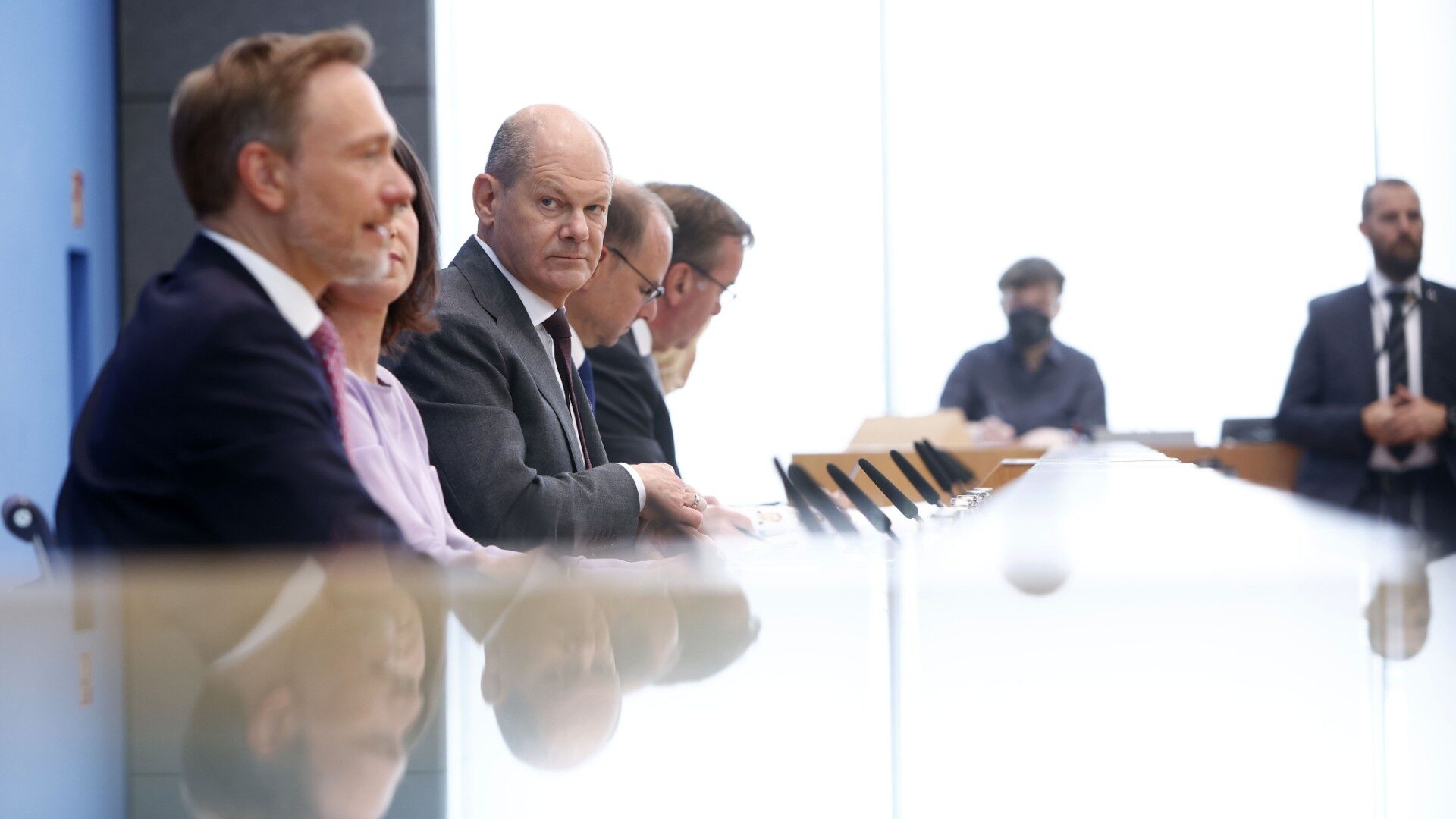
(L-R) German Finance Minister Christian Lindner, German Foreign Minister Annalena Baerbock, German Chancellor Olaf Scholz, and German Defence Minister Boris Pistorius (5th L) give a press conference on June 14, 2023 ,to present the German government’s national security strategy for the country.
Photo: MICHELE TANTUSSI / AFP
On Wednesday morning, June 14th, the German government presented its first-ever national security strategy blueprint. While that strategy comprises all domestic and foreign threats to Germany, including cyber attacks, attacks on critical infrastructure, and climate change, it also demonstrated Berlin’s growing attention to the military dimension.
“Germany’s security environment is undergoing profound change and we are living through a watershed era, a Zeitenwende,” the document reads.
In the wake of Russia’s invasion of Ukraine, which prompted nothing short of a historic re-armament for Germany, it cites Russia as “for now the most significant threat to peace and security in the Euro-Atlantic area.”
Without explicitly mentioning Russia, an accompanying letter by Federal Minister for Foreign Affairs Annalena Baerbock (Greens), reads that Germany must be “wehrhaft (robust) to protect itself and its allies from external violence.” To achieve that aim, she continued:
we are investing in our Bundeswehr (army). That is why we are consolidating the European pillar of NATO and the eastern flank of our Alliance. We are strengthening the European Union. After all it is our life insurance, our insurance policy for peace. What is clear is that with its economic strength, its diplomatic clout and its history, Germany has a special responsibility—in [the] future, we will contribute more to security on the European continent.
On China, Berlin took the same position as the EU, in that it regards the country as a “partner, competitor and systemic rival.”
In the international context, the document continues, “we see that the elements of rivalry and competition have increased in recent years, but at the same time China remains a partner without whom many of the most pressing global challenges [such as climate change] cannot be resolved.”
Yet despite this, it criticized China for trying to “remold the existing rules-based international order,” as it is “asserting a regionally dominant position with ever more vigor, acting time and again counter to our interests and values.”
Publication of the strategy blueprint came mere days before Chinese Premier Li Qiang’s scheduled visit to Berlin.
That visit, his first since being elected, “fully reflects the great importance China attaches to China–Germany relations,” foreign ministry spokesperson Wang Wenbin told a daily press briefing on Thursday, June 15th.
“In the face of the international turmoil, sluggish global economic recovery, and increasing common challenges for mankind, China looks forward to further deepening and expanding China–Germany relations,” he added.
Asked what he intended to convey to Beijing in the blueprint, Scholz told a press conference:
The point is that China will continue to grow economically and that China’s integration into world trade and world economic relations should not be impaired.
At the same time, he added, “the security issues that arise for us must be taken into account,” stressing that Germany “does not want decoupling, we want de-risking”—a recent and common refrain echoed by many Western democracies.
China remains a hot-button issue in German politics. Only last year, German Chancellor Olaf Scholz visited China to discuss matters of trade. At nearly €300 billion in imports and exports, China is Germany’s most important trading partner.
Considered too soft in choosing not to confront China on its human rights abuses and unfair trade practices (among other areas of concern), Scholz found himself much-criticized at home, even by some within his own coalition government.
Within Germany’s business community, anxiety reigns as many CEOs have warned of the risks of cutting or reducing links with what is the world’s second-largest economy.
Mercedes-Benz CEO Ola Kaellenius said in April that decoupling from China was “unthinkable for almost all of German industry.” German businesses, however, agree that Germany should diversify away from China for its supply of critical raw materials.
In Wednesday’s press conference, Baerbock said government officials had held “intensive talks” with companies active in China. “The good thing is that German companies are drawing similar conclusions to the German federal government,” she said.
A separate strategy for dealing with China is being worked out and will be presented later this year.
